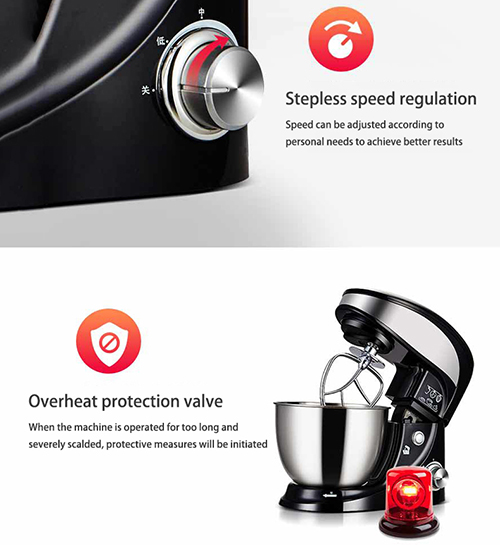how to knead dough with stand mixer
Baking enthusiasts know the immense joy of making homemade bread and pastries. Kneading is one of the key elements in obtaining a perfect dough. Traditionally, dough kneading is done by hand and is a tiresome and time-consuming process. However, with the help of a stand mixer, this task becomes much more convenient and efficient. In this blog, we’ll revolutionize your baking experience by walking you through the steps of kneading dough with a stand mixer.
Step 1: Setup
Before starting the kneading process, make sure you have the proper stand mixer attachment. Typically, a dough hook is used when kneading dough. Make sure the bowl and dough hook are securely attached to the stand mixer. It’s also important to gather all the necessary ingredients and measure them accurately.
Step 2: Mix the Dough
In the bowl of a stand mixer, combine dry ingredients such as flour, salt, and yeast. Mix on low speed for a few seconds to evenly combine ingredients. This step is critical because it prevents dry ingredients from flying around when the blender starts up.
Step Three: Add Liquid
With the mixer running on medium speed, slowly pour liquid ingredients, such as water or milk, into a bowl. This allows for gradual merging and prevents messy splatters. Make sure to scrape down the sides of the bowl to ensure all dry ingredients are incorporated.
Step Four: Knead the Dough
Once the liquid is thoroughly mixed with the dry ingredients, it’s time to switch to the dough hook attachment. Knead the dough at low speed first, gradually increasing it to medium speed. Let the stand mixer knead the dough for about 8-10 minutes or until it is smooth and elastic.
Step Five: Monitor the Dough
As the stand mixer does its work, pay close attention to the consistency of the dough. If it seems too dry or crumbly, add a little liquid, a tablespoon at a time. Conversely, if the dough seems too sticky, sprinkle some flour on top. Adjusting the texture will ensure you get the perfect dough consistency.
Step 6: Assess Dough Readiness
To determine if the dough is kneaded properly, perform the windowpane test. Take a small piece of dough and stretch it gently between your fingers. If it stretches without cracking, and you can see a thin, translucent film, similar to windowpane, then your dough is ready.
Harnessing the power of a stand mixer to knead dough is a game-changer for the home baker. Not only does it save time and effort, but it produces a consistent and well-kneaded dough. Remember to always follow the manufacturer’s directions when using a stand mixer, and adjust kneading times to your specific recipe. The satisfaction of freshly baked breads and pastries made from lovingly kneaded dough is at your fingertips. So put on your baker’s hat, fire up your stand mixer, and start a culinary adventure!
